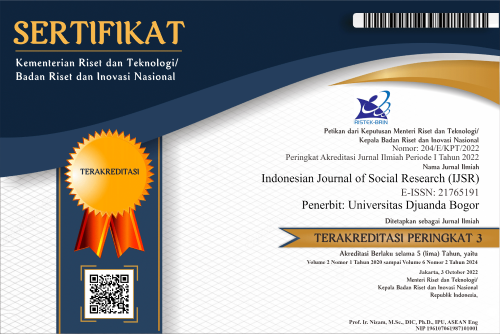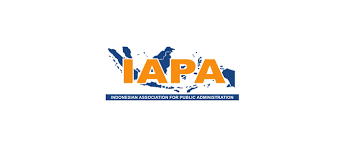Academic Performance of Undergraduate Students in Stem and Arts Subjects in Bhutan: A Gender Perspective
Abstract
Academic performance disparities among the gender of students are the cause of concern. Numerous explanations for academic performance disparities, especially in Science Technology Engineering and Mathematics (STEM) and Arts subjects between male and female students, are established in many countries. However, similar studies in Bhutan, especially at the tertiary education level, are scant. Therefore, this study mainly assessed i) students’ perception of STEM and Arts subjects, ii) compared male and female academic performance in STEM and Arts subjects, and iii) studied students' perception of the factors affecting their academic performance. Data were collected from 265 students of four constituent colleges (two Science and Arts colleges each) of the Royal University of Bhutan using semi-structured questionnaires. A multistage sampling (comprising a mixture of purposive and random) was employed. The research used a quantitative approach with descriptive and inferential statistics (Chi-square, t-tests, and binary logistic regressions). The result showed no significant association between students’ gender and their choice of subjects. At Science colleges, female students outperformed male students. In contrast, there were no significant differences in the performance of male and female students at Arts Colleges. Overall, females (71.63 ± 6.35) outperform male (69.57 ± 7.80) students. Hence, there are no stereotypes in STEM and Arts subjects among Bhutanese undergraduate students. However, future research could include parents and lecturers to gather their perspectives on STEM and Arts subjects. Variables, including study hours, communication skills, and Bhutanese Educational Policies, should also be thoroughly investigated as factors affecting students' academic performance
References
Atovigba, M., Vershima, A. M., & Ijenkeli, E. (2012). Gender trends in Nigerian secondary school students’ performance in Algebra. Research Journal of Mathematics and Statistics, 4(2), 42–44.
Banleman, K., & Adjoa, Y. F. (2017). An Analysis of the correlation between Academic library use and student’s academic performance: A case study of UDS-Wa Campus. 7(3), 13–20.
Baruch, Y. (1999). Response rate in academic studies-A comparative analysis. Human Relations, 52(4), 421–438.
Begum, T., & Phukan, M. (2001). Academic Achievement and Intelligence: A Correlational Study in Boys and Girls. Indian Psychological Review, 56(2), 103–106.
Black, P. (1). Wiliam. D.(1998). Assessment and classroom learning. Assessment in Education, 5(1), 7–74.
College of Natural Resources [CNR]. (2021). Information Management System. Retrieved from https://ims.rub.edu.bt/public/
Dayioğlu, M., & Türüt-Aşik, S. (2007). Gender differences in academic performance in a large public university in Turkey. Higher Education, 53(2), 255–277.
Ghazvini, S. D., & Khajehpour, M. (2011a). Gender differences in factors affecting academic performance of high school students. Procedia-Social and Behavioral Sciences, 15, 1040–1045.
Ghazvini, S. D., & Khajehpour, M. (2011b). Gender differences in factors affecting academic performance of high school students. Procedia-Social and Behavioral Sciences, 15, 1040–1045.
Goni, U. (2015). Gender Difference in Students’ Academic Performance in Colleges of Education in Borno State, Nigeria: Implications for Counselling. Journal of Education and Practice, 6(32), 107–114.
Hill, C., Corbett, C., & St Rose, A. (2010). Why so few? Women in science, technology, engineering, and mathematics. ERIC.
Karthigeyan, K., & Nirmala, K. (2012). Academic achievement in English: An analysis through gender lens. MIER Journal of Educational Studies Trends and Practices, 144–157.
Khwaileh, F. M., & Zaza, H. I. (2011). Gender differences in academic performance among undergraduates at the University of Jordan: Are they real or stereotyping. College Student Journal, 45(3), 633–648.
Kiptum, J. K., Rono, P. K., Too, J. K., Bii, B. K., & Too, J. (2013). Effects of students gender on mathematics performance in primary schools in Keiyo South District, Kenya. Language, 47(0).
Köseoglu, Y. (2015). Self-Efficacy and Academic Achievement—A Case from Turkey. Journal of Education and Practice, 6(29), 131–141.
Ministry of Education [MoE]. (2020). Instruction for class XI admission into Government Higher Secondary School in 2021. Retrieved from http://www.education.gov.bt/wp-content/uploads/2021/04/Instructions-for-class-XI-admission.pdf
MoE. (2020). Annual Education Statistics 2020. Retrieved from http://www.education.gov.bt/wp-content/uploads/2020/11/AES-2020-Final.pdf
MoE. (2018). Annual Education Statistics 2018. Retrieved from http://www.education.gov.bt/wp-content/downloads/publications/aes/Annual-Education-Statistics-Book-2018.pdf
MoE. (2014). Bhutan Education Blueprint 2014-2024. Thimphu: MoE, RGoB.
Nosek, B. A., Banaji, M. R., & Greenwald, A. G. (2002). Math= male, me= female, therefore math≠ me. Journal of Personality and Social Psychology, 83(1), 44.
Odoh, L. C., Ugwuanyi, U. B., Odigbo, B. E., & Chukwuani, N. V. (2017). Influence of parental occupation and level of education on academic performance of accounting students in Nigeria. Research on Humanities and Social Sciences, 7(10), 21–27.
Olufemi, O. T., Adediran, A. A., & Oyediran, W. (2018). Factors affecting students’ academic performance in colleges of education in Southwest, Nigeria. British Journal of Education, 6(10), 43–56.
Omolade, A. O. K. A. O., & Salomi, O. M. (2011). RELATIVE EFFECTS OF PARENTS’OCCUPATION, QUALIFICATION AND ACADEMIC MOTIVATION OF WARDS ON STUDENTS’ACHIEVEMENT IN SENIOR SECONDARY SCHOOL MATHEMATICS IN OGUN STATE, NIGERIA. OFFICE OF RESEARCH AND DEVELOPMENT, EKITI STATE UNIVERSITY, ADO-EKITI, EKITI STATE, NIGERIA., 14.
Organization for Economic Cooperation and Development. (2004). Gender equity: Education, employment, and entrepreneurship. USA: EPEC.
Plante, I., De la Sablonnière, R., Aronson, J. M., & Théorêt, M. (2013). Gender stereotype endorsement and achievement-related outcomes: The role of competence beliefs and task values. Contemporary Educational Psychology, 38(3), 225–235.
Population and Housing Census of Bhutan. (2017). National Statistical Bureau, Thimphu.
Pritchard, M. E., & Wilson, G. S. (2003). Using emotional and social factors to predict student success. Journal of College Student Development, 44(1), 18–28.
Ridgell, S. D., & Lounsbury, J. W. (2004). Predicting academic success: General intelligence," Big Five" personality traits, and work drive. College Student Journal, 38(4), 607–619.
Royal University of Bhutan [RUB]. (2021). Constituent Colleges. Retrieved from https://www.rub.edu.bt/index.php/en/teaching-learning/colleges/constituent-colleges.html
Senaviratna, N., & Cooray, T. (2019). Diagnosing multicollinearity of logistic regression model. Asian Journal of Probability and Statistics, 1–9.
Steffens, M. C., Jelenec, P., & Noack, P. (2010). On the leaky math pipeline: Comparing implicit math-gender stereotypes and math withdrawal in female and male children and adolescents. Journal of Educational Psychology, 102(4), 947.
United Nations Educational, Scientific, and Culture Organization. (2015). Gender equality in education
Van Zundert, M., Sluijsmans, D., & Van Merriënboer, J. (2010). Effective peer assessment processes: Research findings and future directions. Learning and Instruction, 20(4), 270–279.
Wong, S. H. R., & Webb, T. (2011). Uncovering meaningful correlation between student academic performance and library material usage. College & Research Libraries, 72(4), 361–370.
World Economic Forum. (2016). The Global Gender Gap Report. Retrieved from http://www3.weforum.org/docs/GGGR2015/cover.pdf
Yamane, T. (1967). Statistics: An introductory analysis, 2nd edn, Harper and Row, New York.
Yun, D. (2001). Gender differences in verbal and mathematics skills among Chinese adolescents. Journal of Secondary Gifted Education, 13(1), 22–33.
Copyright (c) 2021 Indonesian Journal of Social Research (IJSR)

This work is licensed under a Creative Commons Attribution-ShareAlike 4.0 International License.
The Authors submitting a manuscript do so on the understanding that if accepted for publication, copyright publishing of the article shall be assigned/transferred to Indonesian Journal of Social Research (IJSR) Universitas Djuanda as Publisher of the journal. Upon acceptance of an article, authors will be asked to complete a 'Copyright Transfer Agreement'. An e-mail will be sent to the corresponding author confirming receipt of the manuscript together with a 'Copyright Transfer Agreement' form by online version of this agreement.
Indonesian Journal of Social Research (IJSR) Universitas Djuanda, the Editors and the Editorial Board make every effort to ensure that no wrong or misleading data, opinions or statements be published in the journal. In any way, the contents of the articles and advertisements published in the Indonesian Journal of Social Research (IJSR) Universitas Djuanda are sole and exclusive responsibility of their respective authors and advertisers.
Remember, even though we ask for a transfer of copyright, our journal authors retain (or are granted back) significant scholarly rights as mention before.
The Copyright Transfer Agreement (CTA) Form can be downloaded here: Copyright Transfer Agreement-IJSR 2020
The copyright form should be signed electronically and send to the Editorial Office e-mail below:
Dr. Rasmitadila, M.Pd (Editor-in-Chief)
Universitas Djuanda
Jl. Tol Jagorawi No.1, Ciawi, Kec. Ciawi, Bogor, Jawa Barat 16720
Website: http://journal.unida.ac.id/index.php/IJSR/index
Email: ijsr@unida.ac.id





4.png)



